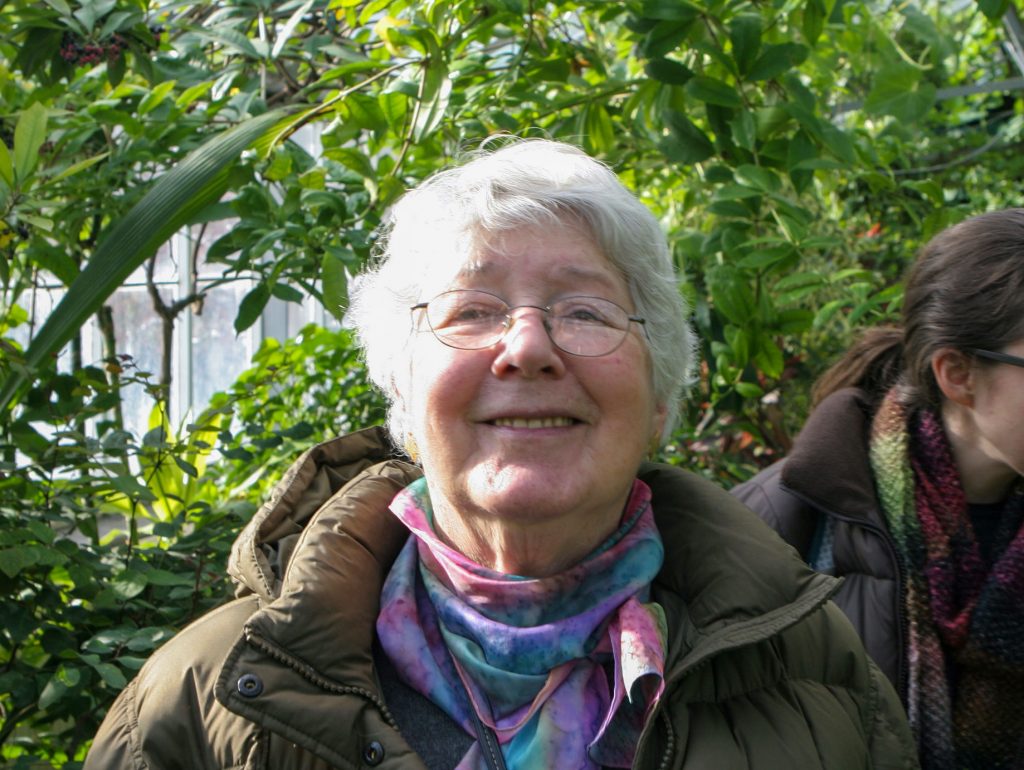Former ARA Chair, Metro and City Councillor Ila Bossons passes at 83
By Nicole Stoffman
When big decisions hang in the balance at city hall, councillors often form predictable coalitions along the political spectrum. Ila Bossons was one councillor who bucked that trend. “The middle way is the best way,” the independent candidate declared in 1988, during her successful campaign to become Metro Councillor for the new ward of Midtown, which included the Annex.
This philosophy characterized her four terms as a Metro and city councillor from 1988-2000, during which she took strong positions on divisive issues from panhandling to property tax increases. More than once, she was one of a small minority of councillors who voted against what she called “glory projects” like the National Trade Centre and Toronto’s two Olympic bids. She argued money would be better spent on fixing roads and investing in housing, schools and hospitals.
Ila Bossons died of a stroke on November 30, at the age of 83. Born in 1937 in Freiburg, Germany, she met her husband, John, while they were both at the University of Pittsburg where she was studying languages and sociology. They moved to Toronto in 1966, where John became a professor in the Economics department at the University of Toronto.
Bossons was Chair of the Annex Resident’s Association from 1984-87, while a resident of Elgin Avenue.
“That was how she got into politics, through becoming concerned about what was happening in the Annex as a result of development pressures,” explained John Bossons.
Ila Bossons did not answer to interest groups in her pursuit of enhancing Toronto’s liveability. As one of only three councillors who voted against the building of the National Trade Centre she noted, “I didn’t feel the pressure of the unions, but obviously others did.”
On the issue of turning Toronto’s sewage into fertilizer, she challenged environmentalists who were concerned about its toxicity, arguing that it would have been tested before being used. “We’re really trying to do something that’s environmentally safe, and all we get is hysteria,” Bossons said at the time.
“Her philosophy was to take the best from both sides, and not get deflected by ideology,” explained John Bossons, her husband of 56 years. “That was her basic attitude toward problems.”
The fight against market value reassessment (MVA) in the early 90s was a big problem Bossons faced in her political career. The majority of homeowners in the Yorkville and Annex neighbourhoods she represented as councillor for Midtown would have seen their property taxes go up, some by as much as 45%. The provincial legislation proposed that property values, not updated since the 50s, be assessed at 1988 levels. Bossons’ vigorous campaign against MVA out of concern for its impact on seniors and small businesses helped to get it introduced more gradually.
In response to the proliferation of aggressive panhandling and “squeegee kids” in the late 90s, Bossons proposed a by-law, modelled after one in Vancouver, that would ban approaching a stopped car to panhandle, or any panhandling near a bank branch, subway, ATM machine, or liquor store. The Toronto Star named it “Bossons’ Bylaw,” and called it mean-spirited and unconstitutional. Emotional letters poured in on both sides, with some thanking Bossons for “reclaiming the streets for all of us.” Though defeated at the city level, The Safe Streets Act was passed by the Province the following year. It was much narrower in scope than “Bossons’ Bylaw,” banning only aggressive panhandling. Belonging to what she called the “middle portion of council,” may have given Bossons the freedom to take on this contentious issue.
Ila Bossons’ interests lay in city-wide issues. As Chair of the Metro Works Committee, Bossons backed practical solutions to waste disposal, arguing that central composting and incineration were strategies that could be used responsibly in Toronto as they are used in Western Europe, the U.S. and the U.K.
“Ila Bossons was at the vanguard of the waste diversion and recycling movement in the 1990s,” recalled Mike Chopowick, CEO of the Ontario Waste Management Association. “Her efforts helped set the stage for the progress we’ve achieved since then. As of today, the City of Toronto now collects approximately 160,000 tonnes of organic food waste a year and processes the large majority of it within city limits. Councillor Bossons’ leadership and dedication to waste management issues will no doubt be a lasting legacy.”
Councillor Bossons was an activist who fought to ensure that Toronto’s boom was thoughtfully managed. “She was certainly a consensus builder,” recalls Chopowick. “And just very genuinely caring for her city and its citizens.”
Ila Bossons cycled to work every day, foregoing the chauffeured vehicles available to Metro councillors. An early advocate of bike lanes, she was instrumental in having the first ones installed along the Bloor Street Viaduct. “Let me tell you, it was the difference between terror and safety,” said neighbour Eric Jackson.
She had a lifelong interest in nature, and served on the Toronto Conservation Authority Board for 14 years, from 1989-2003.
“One of Ila’s passions during her 10+ years on TRCA’s watershed advisory boards was advocating for sustainable and responsible use of our water resources, in both our urban and rural communities,” recalled Ms. Jennifer Innis, TRCA Board Chair.
Ila Bossons leaves her husband, John, son Miles, and brother Walter Haeberle. A celebration of life will follow in late spring.


1 response so far ↓
1 Gillian Bartlett // Jan 28, 2021 at 3:45 pm
Thanks so much, Nicole, for a wonderfully informative obituary. It brought back so many memories — and Ila Bossun’s name was always synonymous with good common sense.